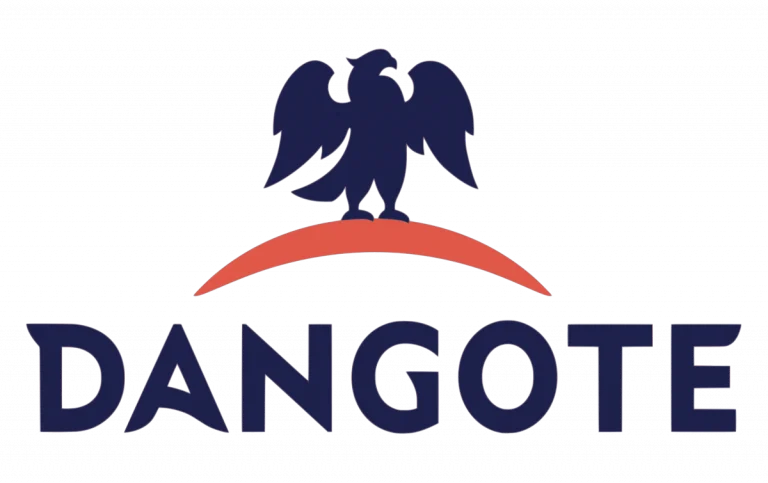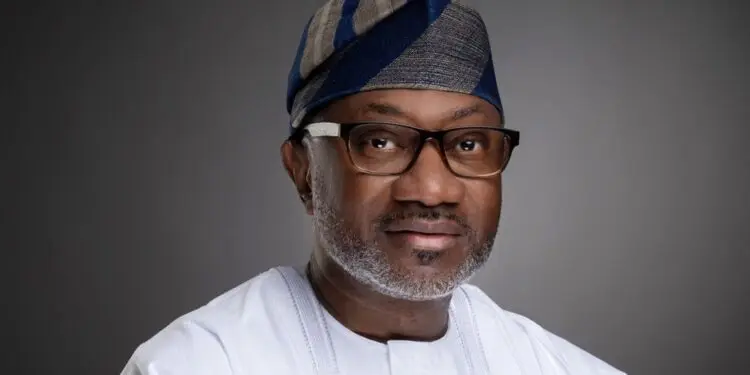Business
Marketers Predict Six-month Fuel Scarcity, Prices Rise

The supply hitches associated with the distribution of Premium Motor Spirit, popularly called petrol, may persist till June this year, oil marketers stated on Wednesday.
Nigeria’s downstream oil sector has been grappling with cases of incessant petrol scarcity since last year.
The sole importer of the commodity – Nigerian National Petroleum Company Limited, has repeatedly complained of the enormous burden of shouldering fuel subsidy for the country.
On Monday, the Minister of State for Petroleum Resources, Chief Timipre Sylva, said NNPC was selling petrol at a loss because of its mandate from the Federal Government as regards fuel subsidy.
“If you are a businessman, look at it from this perspective, that you are now in the business where you are mandated to sell at a loss to the public. That is not an easy job, I must tell you,” the minister stated.
Last week, the Minister of Finance, Budget and National Planning, Zainab Ahmed, said the Federal Government had budgeted about N3.6tn for fuel subsidy till June 2023.
Reacting to the development, oil marketers stated on Wednesday that the fuel supply crisis in many parts of the country that often leads to fuel scarcity, might persist till June, based on the government’s plan to end petrol subsidy in that month.
READ ALSO: FG Disburses N173bn For Uniform Fuel Price Nationwide
The National Public Relations Officer, Independent Petroleum Marketers Association of Nigeria, Chief Ukadike Chinedu, told our correspondent that fuel imports and subsidy were making Nigerians suffer.
He said, “This issue of subsidy and the importation of petroleum products are the major reasons why we are suffering like this and having epileptic supply of PMS. This may drag till the current administration leaves in May or till June this year.
“The exchange rate is affecting fuel imports, which is also why the cost of petroleum products are high. We use too much naira to chase the few dollars that are available. So the solution is for us to refine our crude here and get our depots working.”
He added, “Also, we should note that most times when an administration is leaving, there is usually scarcity of products. It happened during the time of former President Goodluck Jonathan.
“This is because suppliers will be very weary of selling petroleum products so that their debts will not be carried over to the next administration. Successive governments have suffered this epileptic distribution of petroleum products during transition to a new government.
“The government is winding up, and if you are a supplier you have to be careful in terms of supplying petroleum products. Remember that when Jonathan was there, marketers who were supplying products stopped and went on strike, demanding that they must be paid their arrears.”
The President, Petroleum Retail Outlet Owners Association of Nigeria, Billy Gillis-Harry, also stated that the availability of petrol for marketers to distribute had remained an issue of concern.
READ ALSO: Fuel Scarcity: Students, Group Back DSS’ Ultimatum, Blasts Falana
“Let there be products to sell. That is what we are yearning for. Once that problem is sorted, then others shall be addressed too,” he stated.
Commenting on the issue, a former President, Association of National Accountants of Nigeria, Dr. Sam Nzekwe, told our correspondent that the crisis in the downstream oil sector would be best addressed when Nigeria’s refineries become functional.
IPMAN complains
The Chairman, IPMAN Satellite depot, Akin Akinrinade, told The PUNCH that its members were yet to take delivery of any product from the state oil firm.
He said, “We have yet to see anything. They promised us something in December, but now they said January. All they’ve done is ask us to submit names and change from the old system-NNPC Express to NNPC Retail. Other than that, we are yet to receive any product.
“But I can assure you that this scarcity will continue well after June if NNPCL does not supply us products directly and at regulated price.”
Akinrinade also said the price of fuel had hit between N222/N225 at private depots as of last Friday.
National Operations Controller, IPMAN, Mike Osatuyi, also told The PUNCH that his members were yet to get any product from the NNPCL.
“We are still waiting. We will wait until the middle of this month before we react. But as of last week, our members buy fuel above N200 per litre. But information reaching me is that as of today, the price has increased to N230 per litre, without transportation and other expenses”, he said.
In December, Osatuyi had told The PUNCH that his members were holding strategic meetings with the new NNPCL Retail Managing Director, Hubb Stockman, who promised to supply them products directly at government regulated price of N148/litre starting from this month.
However, members of the association, according to Osatuyi and Akinrinnade, were yet to receive any products despite having compiled necessary lists, and switching from the old NNPCL Express platform, to the NNPCL Retail as directed by Stockman.
The PUNCH reached out to the Executive Secretary of the Major Oil Marketers Association of Nigeria, Clement Isong, on why some of its members did not have products.
He had yet to respond as of the time of filing this report.
However, a top member of the MOMAN who claimed anonymity told The PUNCH, that although the scarcity had eased, some of its stations currently do not have supplies.
“The scarcity has eased and things have gone back to normal. No queues and our stations sell at normal regulated prices. However, some of our stations who don’t have supplies will be supplied”, he told The PUNCH.
The spokesperson for the Depots and Petroleum Products Marketers Association of Nigeria, Adewole Olufemi, said the depots were in need of more fuel supplies from the NNPCL.
READ ALSO: ‘Why Fuel Scarcity, Long Queues Persist In Nigeria’
“Until and unless the queues are completely eliminated, we’ll require more volume than usual, DAPPMAN cannot be satisfied. We’re working with the sole supplier, NNPC Ltd and the regulator to ensure PMS is available nationwide”, he said regarding the scarcity.
On skyrocketing ex-depot’s prices, Adewole said just like the NNPCL, depot owners were also on a recover-all-cost regime.
“Costs incurred by marketers, vessel chartering, trucking and approved margins will be recovered just as NNPC Ltd does to recover its cost inputs”, he added.
The spokesperson for NNPCL, Garba Deen, could not be reached on his official line for his comment.
PUNCH
Business
NNPCL Announces Restoration Of Escravos-Lagos Pipeline

The Nigerian National Petroleum Company Limited (NNPCL) has announced the complete restoration of the Escravos-Lagos Pipeline System (ELPS) in Warri, Delta State, following the recent explosion on the asset.
The chief corporate communications officer (CCCO) of the nation’s oil company, Andy Odeh, in a statement, said that the pipeline is fully operational, reiterating the company’s resilience and commitment to energy security.
“NNPC Limited is pleased to announce the successful restoration of the Escravos-Lagos Pipeline System (ELPS) in Warri, Delta State.
READ ALSO:Fuel Price Cut: NNPCL GCEO Ojulari Reveals Biggest Beneficiaries
“Following the unexpected explosion on December 10, 2025, we immediately activated our emergency response, deployed coordinated containment measures, and worked tirelessly with multidisciplinary teams to ensure the damaged section was repaired, pressure-tested, and safely recommissioned.
“Today, the pipeline is fully operational, reaffirming our resilience and commitment to energy security. This achievement was made possible through the unwavering support of our host communities, the guidance of regulators, the vigilance of security agencies, and the dedication of our partners and staff.
“Together, we turned a challenging moment into a success story, restoring operations in record time while upholding the highest standards of safety and environmental stewardship.
“As we move forward, NNPC Limited remains steadfast in its pledge to protect our environment, safeguard our communities, and maintain the integrity and reliability of our assets. Thank you for your trust as we continue to power progress for Nigeria and beyond,” the statement read.
Business
Dangote Unveils 10-day Credit Facility For Petrol Station Owners

The Dangote Group has announced a 10-day credit facility backed by a bank guarantee for petrol station owners and dealers, alongside free direct delivery and other incentives, as part of a new supply arrangement.
The company disclosed this in a statement posted on its official X handle on Tuesday, inviting petrol station operators across the country to register to benefit from the offer.
According to the statement, participating dealers will enjoy “a 10-day credit facility backed by a bank guarantee,” with a minimum order requirement of 5,000 litres.
“Our free direct delivery service will commence soon,” the group said, adding that the offer is open to “all petrol station owners and dealers.”
READ ALSO:Dangote Sugar Announces South New CEO
The Dangote Group further called on operators to register their stations to access the supply arrangement.
“Register your petrol stations today to benefit from our competitive gantry price,” the statement read.
The company also disclosed that petrol supplied under the arrangement will be sold at a gantry price of ₦699 per litre.
For enquiries, the group provided the following contact numbers: 0802-347-0470, 0809-324-7070, 0809-324-7071 and 0203.
READ ALSO:Dangote Refinery Dispute: PENGASSAN Suspends Strike After FG Intervention
The announcement follows a recent petrol price adjustment by the Dangote Petroleum Refinery.
The PUNCH earlier reported that the refinery reduced its ex-depot petrol price from ₦828 to ₦699 per litre, representing a ₦129 cut or a 15.58 per cent reduction.
An official of the refinery, who spoke to PUNCH Online on condition of anonymity, confirmed the adjustment, saying, “The refinery has reduced petrol gantry price to ₦699 per litre.”
The new price reportedly took effect on December 11, 2025, marking the 20th petrol price adjustment announced by the refinery this year.
Business
JUST IN: Otedola Sells Shares In Geregu Power For N1trn

Billionaire businessman, Femi Otedola, has sold his majority stake in Geregu Power Plc for N1.088 trillion in a deal financed by a consortium of banks led by Zenith Bank Plc.
The Nigerian Exchange, NGX, made this announcement on Monday.
Otedola’s Amperion Power Distribution Company Ltd reportedly held nearly 80 percent of the power generating company.
READ ALSO:N200b Agric Credit Dispute: Appeal Court Slams NAIC, Upholds First Bank Victory
With this new development, Otedola, Chairman of First Holdco Ltd, parent company of First Bank of Nigeria Plc, will reportedly now concentrate on expanding his interest in the Nigerian banking sector, although he still retains some shares in Geregu.
Otedola is said to currently own 17.01 percent of First Bank — its single largest shareholder since the bank was established in 1894.

 News5 days ago
News5 days agoPHOTOS: SGF George Akume Weds Ooni’s Ex-Queen

 News3 days ago
News3 days agoEx-Edo Gov Obaseki Reacts As His Cousin Is Beaten, Stripped

 News2 days ago
News2 days agoBREAKING: Anthony Joshua Involved In Road Accident

 Politics2 days ago
Politics2 days agoWike Speaks On Defecting To APC

 Politics2 days ago
Politics2 days agoJUST IN: INEC Excludes PDP From Ekiti Governorship Election

 Politics2 days ago
Politics2 days agoYou’re Not 001 – Wike Rubbishes Claims Of Fubara Being APC Leader In Rivers

 Metro3 days ago
Metro3 days agoObaseki Beaten, Stripped In Edo

 News2 days ago
News2 days agoNAF Neutralizes Bandits At Turba Hill, Kachalla Dogo Sule Camps

 Entertainment5 days ago
Entertainment5 days agoI’ve Stopped Impregnating Women Anyhow – 2Baba

 News2 days ago
News2 days agoDoris Ogala: How Pastor Chris Knelt Before Church, Begged For Forgiveness [Video]


























